Musician Barry Goldberg Dies at 83 After Cancer Battle
by Best Classic Bands Staff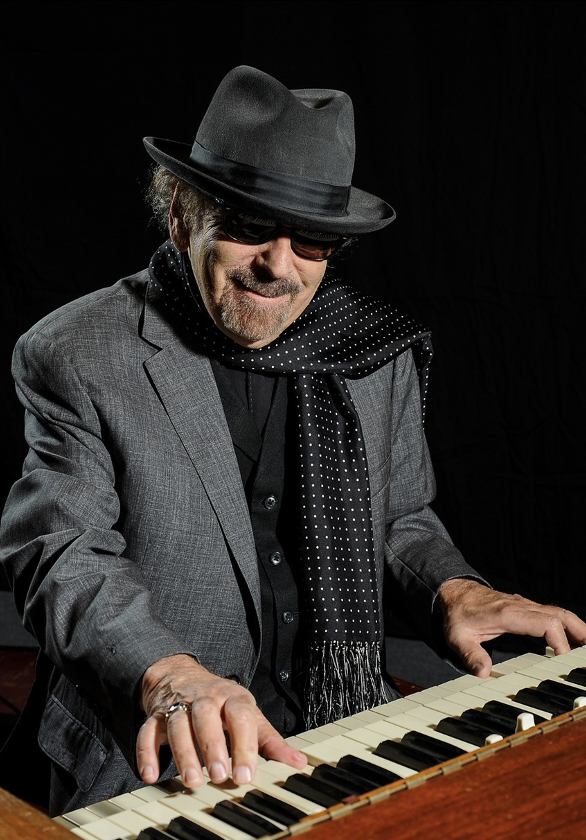
Barry Goldberg
Barry Goldberg, the Chicago-born bluesman and keyboard master celebrated for backing Bob Dylan at the Newport Folk Festival, founding the Electric Flag in partnership with Mike Bloomfield, and for his session work with Muddy Waters, Mitch Ryder, Otis Rush, Leonard Cohen, Ramones and Howlin’ Wolf, has died at age 83, following a 10-year battle with non-Hodgkin lymphoma, a form of cancer. News of his passing on January 22, 2025, was shared by veteran music publicist Bob Merlis. Goldberg had been dealing with his illness in private until May 2024, since it had affected his ability to perform. At that time, friends and family responded with a “Help Barry Goldberg Beat Cancer and Play Again” GoFundMe page.
Goldberg, the centerpiece of the documentary film Born in Chicago, began his recording career as a partner in the Goldberg-Miller Blues Band with Rock and Roll Hall of Famer Steve Miller. Goldberg went on to be a part of the groundbreaking 1968 Super Session album with Bloomfield, Al Kooper and Stephen Stills. He is also the co-writer, with Gerry Goffin, of hits including “It’s Not the Spotlight” (Bobby Blue Bland, Rod Stewart) and “I’ve Got to Use My Imagination” (Gladys Knight and the Pips, Joe Cocker) and co-producer, with Saul Davis, of two award-winning Percy Sledge albums. More recently, he toured and recorded with the Rides, a musical partnership with Stills and Kenny Wayne Shepherd whose 2013 debut full-length topped Billboard’s Blues Albums chart.
Watch a 2017 interview with Stills, Shepherd and Goldberg
Goldberg was born in Chicago on Christmas Day, 1941. His mother Nettie Goldberg, née Nettie Becker, was a barrelhouse piano player in her own right and a veteran of the Jewish theater circuit. His father Frank Goldberg was one of eight children born to Ukrainian-Jewish immigrant parents, including U.S. Supreme Court Justice Arthur Goldberg.
While still in high school, Goldberg befriended guitarist Mike Bloomfield; the two often ventured from Chicago’s northern suburbs to the inner city nightclubs on the South Side where they, along with Paul Butterfield, Charlie Musselwhite and Corky Siegel, became acquainted with, and were ultimately mentored by, such first-generation blues legends as Muddy Waters, Howlin’ Wolf, Buddy Guy, Otis Rush, Sam Lay and others. Goldberg played live with the Paul Butterfield Blues Band (which included his friend Bloomfield) when they backed Bob Dylan at the 1965 Newport Folk Festival; by “going electric,” this performance launched the folk-rock revolution, as depicted in the 2024 film A Complete Unknown.
Goldberg’s relationship with Dylan transcended that historic moment as they would later go on to jam with Doug Sahm and The Band in Woodstock, N.Y. When Goldberg was on the cusp of signing a contract with RCA to record a solo album in 1973, Dylan told him to hold off until he spoke to Jerry Wexler at Atlantic. Dylan biographer Robert Shelton chronicled Dylan’s side of the ensuing conversation: “I’m on the phone with Jerry Wexler from Atlantic Records and I think we can work out a deal but I’m gonna have to produce you; that’s cool, isn’t it?” Barry’s response: “That’s really cool.” Barry Goldberg (1974) would become the only album Bob Dylan ever produced for another artist. When Wexler asked where the album should be made, Goldberg suggested Muscle Shoals, Aabama, as that was where he had cut some of the fabled collaborations with Bloomfield that became the Two Jews Blues album in 1969 (which included Duane Allman). Some of the same players would also end up backing him on the Dylan/Wexler-produced project. Dylan, who had never been to Muscle Shoals, drove from California in his van with the ensuing sessions spanning five days and nights in August 1973. Years later, Goldberg returned the favor when he produced Dylan’s version of “People Get Ready” for Flashback, the feature film starring Dennis Hopper and Kiefer Sutherland, for which he served as music supervisor.
As a session player, Goldberg contributed organ to Mitch Ryder and the Detroit Wheels’ 1966 Top 5 hit “Devil With A Blue Dress On”/”Good Golly Miss Molly” and later worked on albums by Leonard Cohen, Ramones and Flying Burrito Brothers, among many others. His bond with Bloomfield continued as they formed the Electric Flag with drummer Buddy Miles and bassist Harvey Brooks. This band recorded A Long Time Comin’, a groundbreaking album for Columbia in 1968, and well as the soundtrack to The Trip, starring Peter Fonda.
Goldberg was the co-writer, with Gerry Goffin, of hits including “It’s Not The Spotlight” (Bobby Blue Bland, Rod Stewart) and “I’ve Got To Use My Imagination” (a #1 R&B record for Gladys Knight and the Pips; also recorded by Joe Cocker). Goldberg also co-produced, with Saul Davis, two award-winning Percy Sledge albums. He was co-writer with Gram Parsons of “Do You Know How It Feels,” recorded by the Flying Burrito Brothers. More recently, he toured and recorded with the Rides, a musical partnership with Kenny Wayne Shepherd and Stephen Stills. Their two albums, released in 2013 and 2016, both hit #1 on Billboard’s Blues Albums chart.


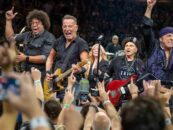
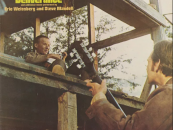
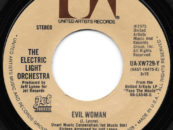
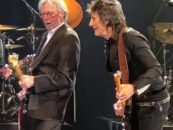

2 Comments so far
Jump into a conversation2 Jews Blues is essential listening !! a very sad Adios Amigo .
The documentary “Born in Chicago” is on Amazon Prime. It’s excellent.